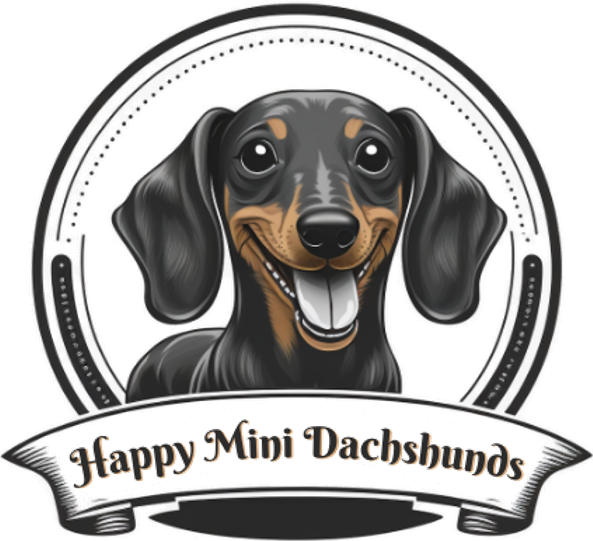Welcoming a miniature dachshund puppy into your home is an exciting and joyous experience. These adorable and loyal dogs make wonderful companions, but as a pet parent, it is crucial to ensure that they receive the right nutrition to promote optimal health and growth.
Choosing the best food for your miniature dachshund puppy can be a daunting task, given the wide range of options available in the market. The right food for your puppy will provide them with the nutrients they need to thrive and support their development. However, the wrong food can lead to health problems, such as obesity, joint problems, and digestive issues.
In this blog post, we’ll explore in-depth the best food for miniature dachshund puppies, including their nutritional requirements, the pros and cons of commercial and homemade food, feeding schedule and portions, foods to avoid, and tips for picky eaters. By the end of this post, you’ll have a comprehensive understanding of what your miniature dachshund puppy needs to eat to be healthy, happy, and energetic. So, let’s dive in!
Key Takeaways:
- Learn about the benefits and drawbacks of commercial and homemade puppy food
- Discover the recommended feeding schedule and portions for a miniature dachshund puppy
- Avoid harmful foods and find tips to encourage picky eaters to try new foods.
Nutritional requirements for miniature dachshund puppies
Miniature dachshund puppies have specific nutritional requirements that are different from adult dogs and other breeds. As a pet parent, it’s essential to understand these requirements and ensure that your puppy’s diet meets them to support their growth, development, and overall health.
Protein is the most crucial nutrient for miniature dachshund puppies, as it provides the building blocks for healthy muscle, bone, and tissue development. A high-quality protein source should be the primary ingredient in your puppy’s food. Look for protein sources like chicken, beef, turkey, and lamb.
Fat is also an essential nutrient for miniature dachshund puppies, as it provides energy and supports the development of a healthy coat and skin. However, too much fat can lead to obesity and related health problems. Aim for a moderate level of fat in your puppy’s diet, typically between 10% and 20%. Good sources of fat include chicken fat, fish oil, and vegetable oil.
Carbohydrates are also important for miniature dachshund puppies, providing energy and fiber. However, it’s crucial to choose carbohydrates that are easily digestible and do not cause digestive problems. Look for complex carbohydrates like brown rice, sweet potatoes, and peas.
In addition to protein, fat, and carbohydrates, miniature dachshund puppies also require vitamins and minerals to support their overall health. Vitamins A, D, and E are particularly important for healthy growth and development, while calcium and phosphorus are essential for strong bones and teeth.
It’s important to choose a high-quality commercial puppy food that meets all of these nutritional requirements. Look for a food that has been formulated specifically for small breeds like miniature dachshunds, as these foods will have the right balance of nutrients for your puppy’s size and breed.
Alternatively, you can choose to make homemade puppy food that meets these nutritional requirements. Be sure to consult with your veterinarian and do your research before making your puppy’s food at home.
Commercial puppy food vs. homemade puppy food
When it comes to feeding your miniature dachshund puppy, you have two options: commercial puppy food or homemade puppy food. Each option has its benefits and drawbacks, and it’s up to you to decide which is best for your puppy’s needs and your lifestyle.
Commercial puppy food
Commercial puppy food is a convenient and straightforward option for most pet parents. These foods are formulated to meet all of your puppy’s nutritional needs and come in a wide range of flavors and textures to suit your puppy’s preferences. Additionally, commercial puppy food is usually readily available at pet stores, grocery stores, and online retailers.
However, not all commercial puppy food is created equal. It’s essential to choose a high-quality food that is specifically formulated for small breed puppies like miniature dachshunds. Look for a food that has a high protein content, easily digestible carbohydrates, and essential vitamins and minerals.
Homemade puppy food
Homemade puppy food is an increasingly popular option for pet parents who want more control over their puppy’s diet. Homemade puppy food allows you to tailor your puppy’s diet to their specific needs and preferences, and it can be a more affordable option than some high-end commercial puppy foods.
However, homemade puppy food requires more time, effort, and research than commercial puppy food. It’s essential to ensure that your puppy’s diet meets all of their nutritional needs, which can be challenging to achieve without the guidance of a veterinarian or animal nutritionist. Additionally, homemade puppy food can be more prone to bacterial contamination if not prepared and stored correctly.
Feeding schedule and portions
Feeding your miniature dachshund puppy on a regular schedule is important to maintain a healthy weight and prevent overeating. It’s recommended to feed your puppy 3 to 4 small meals a day instead of free-feeding to avoid obesity and regulate their metabolism. Here are some tips on how to create a feeding schedule for your miniature dachshund puppy:
- Determine the recommended daily calorie intake for your puppy based on their weight, age, and activity level.
- Divide the total daily calorie intake into 3 to 4 equal meals.
- Choose a time that works for you and stick to a consistent schedule.
- Monitor your puppy’s weight and adjust the portions accordingly.
When it comes to portion size, it’s important to feed your puppy the appropriate amount to avoid obesity or malnutrition. The recommended portion size for miniature dachshund puppies depends on their weight, age, and activity level. It’s important to follow the manufacturer’s recommendations on the packaging of commercial puppy food or consult with a veterinarian for homemade puppy food.
Here are some general guidelines on portion sizes for miniature dachshund puppies:
- For commercial puppy food, the recommended portion size is usually listed on the packaging. It’s important to feed your puppy the recommended portion size based on their weight, age, and activity level.
- For homemade puppy food, consult with a veterinarian to determine the appropriate portion size based on your puppy’s weight, age, and activity level.
- Avoid overfeeding or underfeeding your puppy, as it can lead to health problems.
In addition to portion size and feeding schedule, it’s important to provide your puppy with fresh water at all times. Water is essential for proper digestion and hydration. Make sure to clean your puppy’s water bowl regularly to prevent bacteria buildup.
Creating a feeding schedule and following appropriate portion sizes is crucial to maintaining your miniature dachshund puppy’s health and well-being. By following these guidelines, you can help your puppy grow into a happy and healthy adult dog.
Foods to avoid
While there are plenty of foods that can provide your miniature dachshund puppy with the necessary nutrients they need to grow and develop, there are also certain foods that you should avoid feeding them. Some foods that may be harmless or even healthy for humans can be toxic to dogs. Here are some of the foods you should avoid feeding your miniature dachshund puppy:
- Chocolate: Chocolate contains a substance called theobromine that can be toxic to dogs. Dark chocolate and baking chocolate are particularly dangerous.
- Grapes and raisins: Grapes and raisins can cause kidney failure in dogs.
- Onions and garlic: Onions and garlic can cause anemia in dogs.
- Avocado: Avocado contains a substance called persin that can be toxic to dogs.
- Alcohol: Alcohol can be extremely dangerous to dogs and can cause vomiting, diarrhea, difficulty breathing, and even coma or death.
- Bones: While bones may seem like a natural treat for dogs, they can actually pose a number of risks, including broken teeth, choking, and gastrointestinal blockages.
- Raw meat and eggs: Raw meat and eggs can contain harmful bacteria such as Salmonella and E. coli.
By avoiding these foods, you can help keep your miniature dachshund puppy safe and healthy. If you suspect that your puppy has ingested any of these foods, contact your veterinarian right away.
Related: Can I Give My Mini Dachshund Benadryl?
Tips for picky eaters
It can be a challenge to feed a picky eater, but there are some tips and tricks you can try to entice your miniature dachshund puppy to eat.
Firstly, try changing the texture of the food. Sometimes picky eaters simply don’t like the texture of their food. If you are feeding kibble, try moistening it with warm water or adding a small amount of wet food to make it more appealing.
Secondly, try adding some variety to their diet. Just like humans, dogs can get bored of eating the same thing every day. Consider rotating between different types of protein, such as chicken, beef, and fish, and incorporating different fruits and vegetables as well.
Thirdly, try using food as a reward. If your miniature dachshund puppy is picky, try offering small, bite-sized treats as rewards for eating their meals. This can help to create a positive association with mealtime.
Finally, consider consulting with your veterinarian if your miniature dachshund puppy is consistently refusing to eat. There may be underlying health issues that need to be addressed.
It’s important to remember that picky eating in miniature dachshund puppies can be common, but it’s important to ensure that they are getting the nutrition they need for healthy growth and development. With patience and perseverance, you can help your picky eater develop healthy eating habits.
Conclusion
In conclusion, feeding a miniature dachshund puppy a balanced and nutritious diet is crucial for their overall health and well-being. It’s important to consider their specific nutritional needs, as well as their feeding schedule and portion sizes, in order to prevent obesity and other health issues. While there are many commercial puppy foods available, homemade options can also be a great choice as long as they are properly balanced and supplemented. It’s also important to avoid feeding your puppy certain foods, such as chocolate and onions, which can be toxic to dogs. For picky eaters, there are a variety of tips and tricks that can help encourage them to eat their meals. By following these guidelines, you can ensure that your miniature dachshund puppy is getting the proper nutrition they need to live a happy and healthy life.

